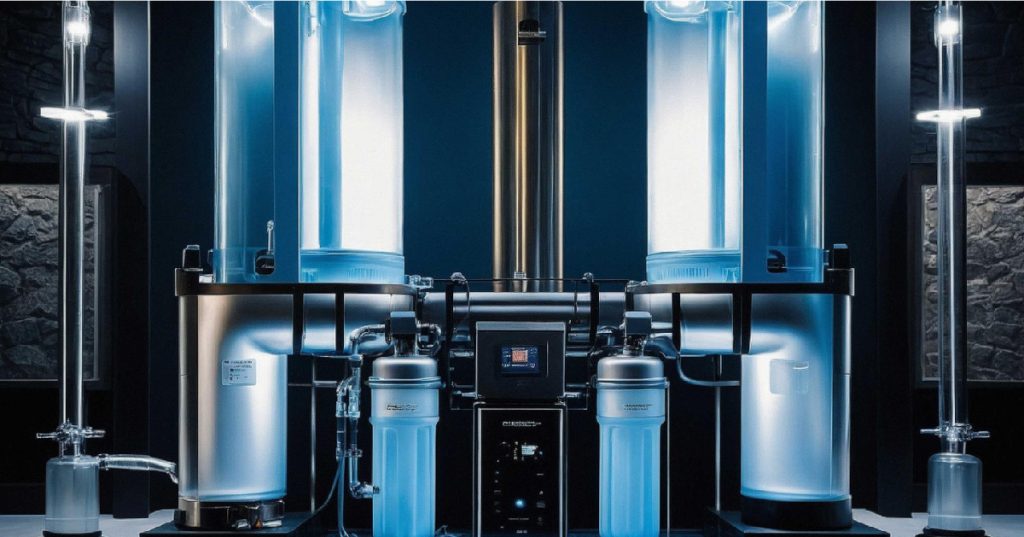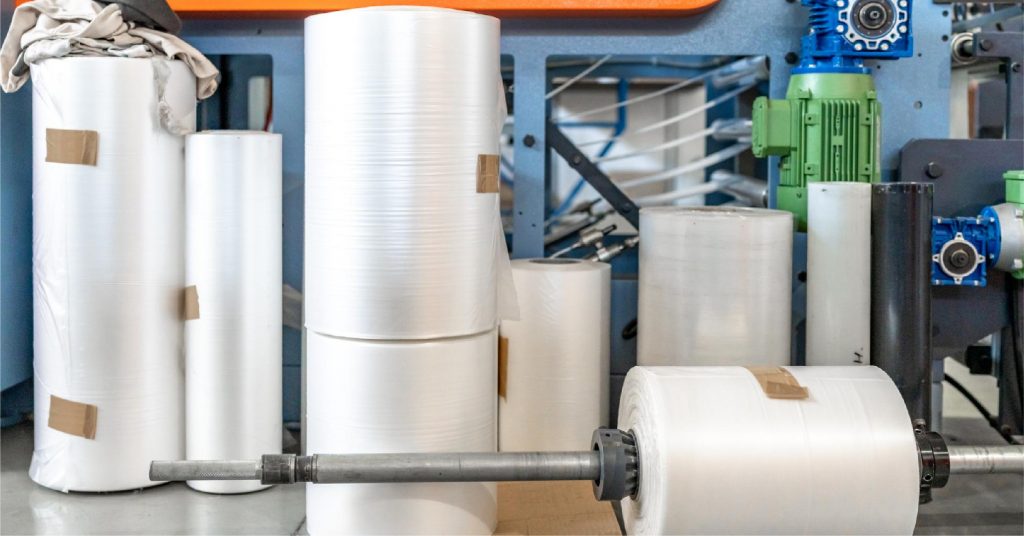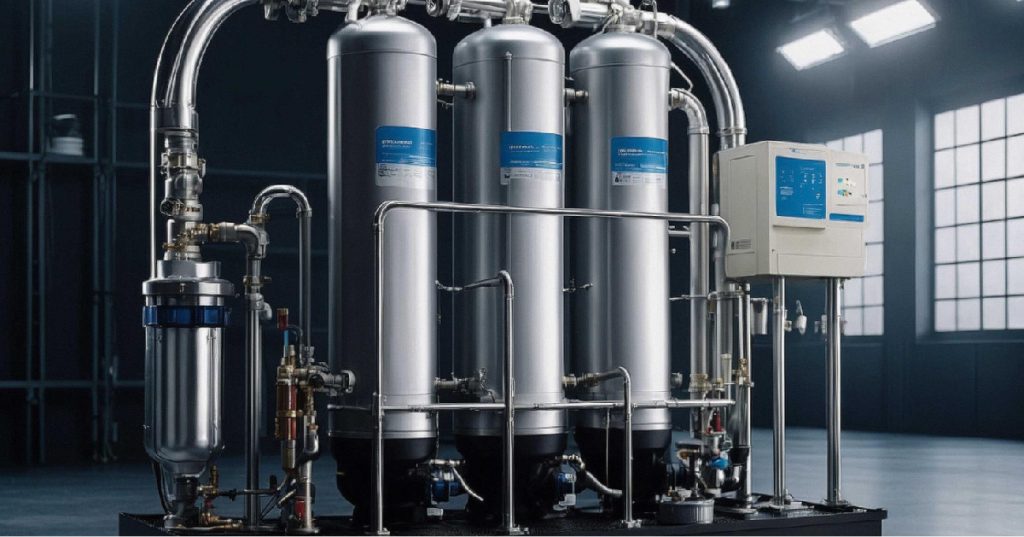In a world where clean and high-purity water is essential across industries—from pharmaceuticals and electronics to laboratories and food processing—deionized water stands out as a critical component. In South Africa, as industrial and technological development accelerates, the demand for ultrapure water is also on the rise. This is where deionization, a key water purification process, comes into play, and ion exchange resins play a vital role in achieving the required water quality.
This blog explores what deionized water is, how a deionized water system works, and the pivotal role of ion exchange resin in ensuring water purity, especially in the South African industrial context.
Table of Contents
ToggleWhat Is Deionized Water?
Deionized water, often abbreviated as DI water, is water that has had all its dissolved mineral salts removed through ion exchange. While it may look like ordinary water, its chemical composition is drastically different. All charged particles, including calcium, magnesium, iron, sodium, chloride, and sulfate ions, are extracted, leaving behind water that is chemically pure and non-conductive.
Understanding what deionized water is is important in applications where even small traces of minerals can cause problems, such as in microchip manufacturing, laboratory experiments, or the preparation of pharmaceutical products.
Unlike reverse osmosis or filtration, which physically block contaminants, deionization targets dissolved ions, making it highly effective in producing water of the highest purity.
The Deionized Water System: How It Works?
A deionized water system uses ion exchange technology to purify water. The system typically consists of two types of ion exchange resins:
- Cation Exchange Resin: This resin removes positively charged ions (such as calcium, magnesium, and sodium) and replaces them with hydrogen (H⁺) ions.
- Anion Exchange Resin: This resin removes negatively charged ions (such as chloride, sulfate, nitrate) and replaces them with hydroxide (OH⁻) ions.
When H⁺ and OH⁻ ions combine, they form H₂O—pure water. The result is water free of dissolved inorganic salts, with extremely low conductivity and high resistivity.
Some advanced deionized water systems also include mixed-bed resins (a combination of cation and anion resins in a single unit), which provide even higher purity levels. These systems are particularly useful in the final polishing stages, where ultra-pure water is required.
Role of Ion Exchange Resin in Water Purity
At the heart of every deionized water system lies the ion exchange resin. These resins are responsible for selectively removing unwanted ions from the water, making them essential to the deionization process. Their performance determines not just the purity of the output water but also the efficiency and cost-effectiveness of the system.
In South Africa, where water sources may vary in quality and mineral composition, selecting the right resin type is crucial. Factors such as total dissolved solids (TDS), water pH, and temperature influence how well resins perform and how often they need regeneration or replacement.
Key benefits of ion exchange resins include:
- High ion-removal efficiency
- Customization for specific contaminants
- Reusability through chemical regeneration
- Long operational lifespan with proper care
To ensure consistent purity, ion resins require periodic monitoring and regeneration using acid (for cation resins) or caustic soda (for anion resins). In high-demand industries, some facilities even maintain dual-resin beds to allow continuous operation during regeneration cycles.
Applications of Deionized Water in South Africa
South Africa’s growing industrial and research landscape is driving demand for high-purity water. Deionized water is commonly used in:
- Pharmaceutical Manufacturing: Where sterility and zero contamination are non-negotiable.
- Laboratories and R&D Facilities: For precise chemical reactions and sensitive instrumentation.
- Food and Beverage Industry: To maintain taste consistency and avoid contamination.
- Automotive and Battery Manufacturing: Where mineral-free water is essential for product reliability.
- Semiconductor and Electronics: In processes where even trace ions can damage microcircuits.
By integrating a reliable deionized water system, these industries ensure process quality, regulatory compliance, and product safety.
Ion Exchange’s Contribution to Delivering Superior Deionized Water Systems
INDION EDI
The INDION Electrodeionisation (EDI) System from Ion Exchange delivers consistent, high-purity water without the need for chemical regeneration, making it both cost-effective and hassle-free. This robust and reliable system integrates the proven technologies of electrodialysis and ion exchange resin deionization, offering a continuous process for producing ultrapure water using ion exchange membranes, resins, and electricity. With features like minimal maintenance and reduced operational costs, the INDION EDI System ensures a steady supply of ultrapure water, making it an ideal solution for various industrial applications.
INDION HEMO
INDION HEMO, a state-of-the-art solution from Ion Exchange, is designed to deliver ultrapure water essential for safe and effective artificial kidney dialysis. Adhering to the stringent standards set by AAMI, Indion HEMO undergoes a meticulous multi-stage treatment process, ensuring water is free from harmful mineral contaminants and bacterial endotoxins. This high-purity water mitigates the risk of adverse reactions such as nausea, vomiting, and muscle weakness in patients undergoing dialysis. Additionally, our comprehensive wastewater management solutions not only guarantee water purity for dialysis but also promote sustainability and cost-efficiency through secondary water usage. Indion HEMO’s offerings include customizable single-pass and double-pass sanitary RO designs, hot water sanitizable RO membranes, and advanced technologies like ultraviolet disinfection, electro-deionization, and ultrafiltration, all aimed at ensuring the highest quality and safety in dialysis water systems.
Conclusion
In South Africa’s fast-evolving industrial landscape, deionized water has emerged as a vital utility. Whether in labs, production plants, or quality control rooms, water purity determines success. Understanding what deionized water is, the functioning of a deionized water system, and the crucial role of ion exchange resins helps organizations make informed decisions about water treatment and quality assurance.





